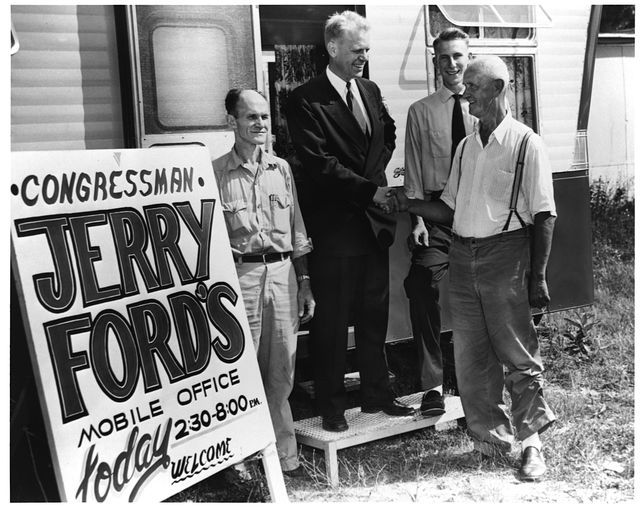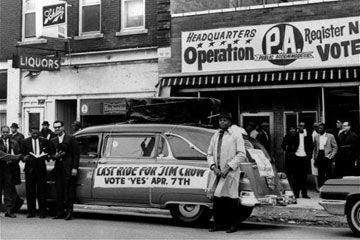
Emily Ellsworth, a Utah-based web content creator and marketer who in a previous life worked as a Congressional staffer, created a sensation recently with a tweet storm offering her insider views on the best — and worst — ways to influence legislators. To people who are enthralled with online communication, it probably came as a rude shock.
Posting an impassioned comment on a Congressperson's Facebook page, for example, turns out to be a complete waste of time. "I never looked at those comments except to remove the harassing ones," Ellsworth explained. Similarly, emails, no matter how eloquently worded, also tended to get lost in the electronic tsunami that Congressional offices must cope with. "We batched them with computer algorithms and sent out form letters on every topic and position," Ellworth wrote.
Advertisement
What worked best? Phone calls, and — as old-fashioned as it might sound — face-to-face contact. "If you want to talk to your rep, show up at town hall meetings," Ellsworth advised. "Get a huge group that they can't ignore. Pack that place and ask questions."
What the Experts Say
In Washington, activists involved in lobbying for issues on Capitol Hill — and training citizens on how to join in — generally concur with what Ellsworth's blunt assessment. But they also counsel that getting your opinion across to your elected official isn't just a matter of using the right mode of communication. The effectiveness of your message also depends a lot on what issues you choose to address, and whether you've got the patience and commitment to your favorite cause to follow up, repeatedly, over time.
Aaron Scherb, director of legislative affairs for the government transparency and accountability lobby Common Cause, worked for three different Democratic Congress members from 2006 to 2010. He says the first step in getting your opinion across is to make sure that you're expressing it to the right legislator — the one in whose district you live. "If you're from Texas and you're contacting a member from New York, his office could care less," Scherb says.
That's one reason, incidentally, why social media isn't a very effective way to communicate with Congress. Even if a member gets 7,000 tweets on the issue of abortion or defense spending, there's no way to tell how many of those people are actually constituents who should be represented. "That makes it easier to dismiss them," Scherb says. And those emails that you get from advocacy groups asking you to send form letters to members of Congress? Their form nature only makes it harder to rise above the electronic noise level.
Be Strategic
Scherb advises a more focused, deliberate approach. Pick some things that you really care about — "a niche or specialty of two or three issues," as he describes it — and develop a long-term strategy for lobbying your Congress member. That strategy should include reaching out multiple times through multiple modes of communication. Instead of signing form letters, write a personalized letter with your views, and send it via email or snail mail. Then follow up with regular phone calls to the legislator's office.
And eventually, if you really want to sell your point of view, try to get a face-to-face meeting. Scherb notes that surveys of Hill staffers by the Congressional Management Foundation show that in-person meetings — in Washington, unfortunately — are the most effective way to communicate your point, followed by district office meetings back home.

It's not as hard to arrange a meeting as you might think, says Alicia McBride. She's the communications director for the Friends Committee on National Legislation, a Quaker advocacy organization that teaches citizens how to lobby on social justice and other issues. One caveat: Usually, a meeting will be with a staffer, not the legislator himself or herself.
But talking to a staffer actually can be a pretty effective way to exert influence, McBridge says, because busy legislators rely on their aides for information on issues.
McBride also counsels that whether you're talking to a staffer or Congress member, it pays to make it a real conversation. "Listening to a member's concerns, as opposed to just yelling at them, is a more effective strategy," she says.
Additionally, you want to make sure that you follow up on the meeting with additional contacts by phone or email. As Scherb explains, Congressional offices routinely compile tallies for members of how many cumulative contacts — emails, calls, meetings — they receive, and how many they get on each issue.
If that sounds tiring, frustrating, and slow, or like it privileges those with the time, energy and resources to reach out, welcome to democracy. As Winston Churchill said, " No one pretends that democracy is perfect or all-wise. Indeed it has been said that democracy is the worst form of government, except for all those other forms that have been tried from time to time."

Advertisement

